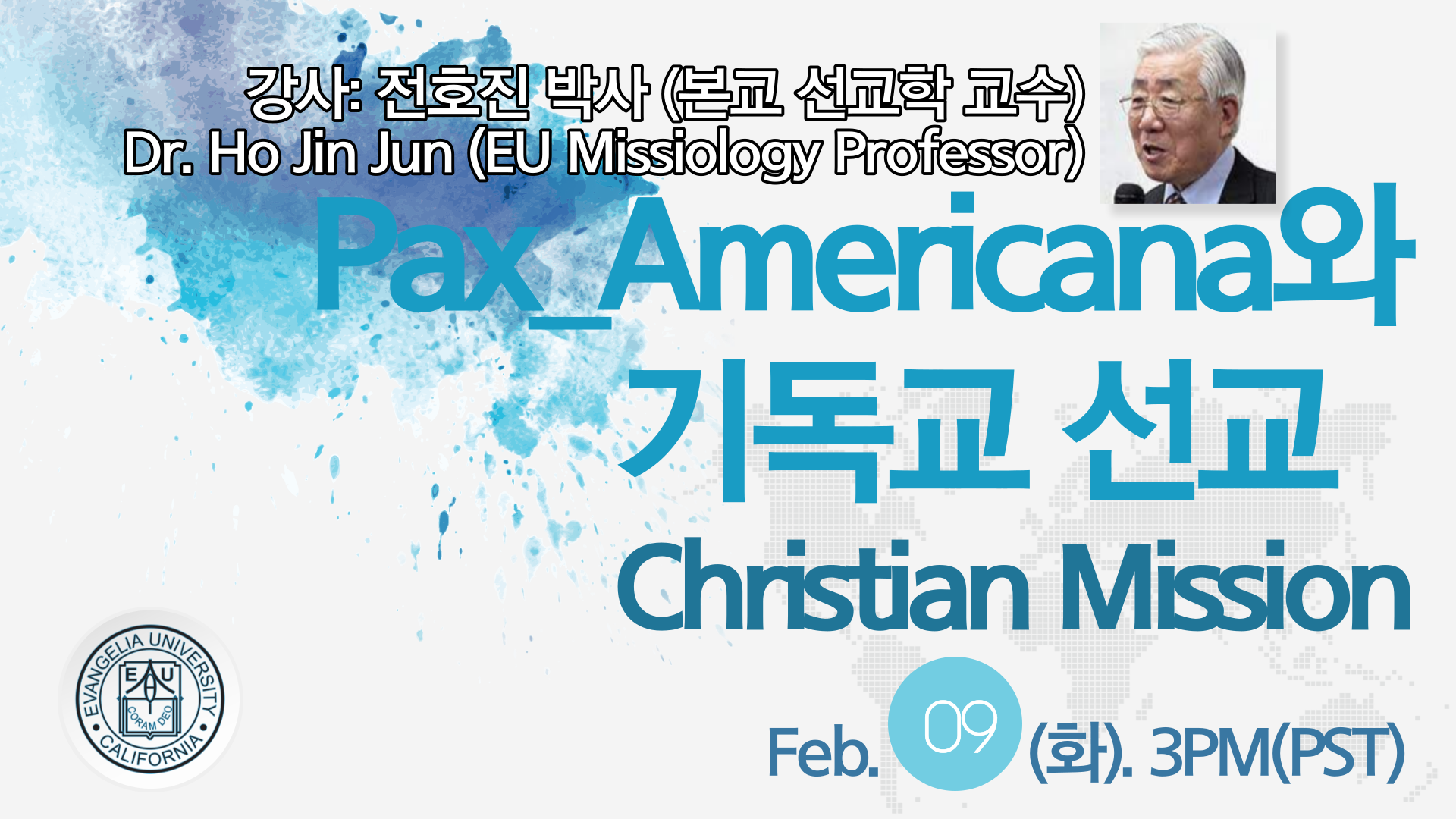An implication of a “Coram Deo” life for educational philosophy is a holistic approach to education. To live in the presence of God is to teach the whole counsel of God, to the whole person, to whole areas of life, for the whole body of Christ, and to the people of the whole world.
Whole Counsel of God.
The Word of God is the foundation and the substance of our teaching. Evangelia University is unapologetic about teaching the Word of God thoroughly, since we believe that the Word of God is the key to all other knowledge. Since partial truth can become an error, Evangelia University tries to teach the entire Word of God, both theologically and biblically, as well as the development of the understanding of God’s truth throughout history.
Whole Person.
Many heresies have risen because only one area of man, whether mind, emotion, or will, or one area of life, is focused. Evangelia University is committed to the Word of God which is sufficient to meet the fundamentals of all areas of human’s need. The faculty and the administration are committed to offer godly examples of spiritual maturity, intellectual rigor, godly judgment, and personal integrity, and to engage in scholarly inquiry and creative activities applicable to the class room and beyond. Personal interaction between the faculty and the students is emphasized. Student presentations, discussions, and faculty-student forums, and thesis writing and presentation provide avenues for such personal interactions. Critical thinking, self-assessment skill, as well as writing, reading, and speaking abilities are emphasized in all classes. Besides the classroom, other avenues provide opportunities for students to grow in their whole being: academic counselor, counselor/chaplain, student association, mentorship, internship with a local church, and other opportunities for cultural and spiritual activities outside of the school.
Whole Areas of Life.
Evangelia University is committed to training both professional ministers of the Word of God as well as lay people who desire to apply the Word of God in their field of calling. The Bachelors program and the Master’s program serve this purpose. Evangelia University believes that the Lordship of Christ extends to every area of life, and that a person who is trained in applying the Word of God in his or her particular field stands in a unique situation to transform that field for the glory of God. Evangelia University is committed to the Reformed emphasis that special revelation fulfills general revelation. An implication is that a well-rounded Christian education entails not only training in the special revelation but in the general revelation. Such a balanced education applies to both the professional ministers of God’s Word as well as lay believers. In order to effectively minister to the congregation members, pastors need to understand the people in all of their life struggles and situations, and they need to be able to effectively and wisely apply the Word of God in their situations. Language training, which is a basic component of general education, applies to both the bachelors and masters programs. For the bachelors program, a rigorous reading load in philosophy, literature, history and culture forms the general education. For the masters programs, theological and biblical studies are balanced by training in practical ministry, which include preaching, counseling, evangelism, administration, leadership, worship, and missions.
Whole Body of Christ.
Evangelia University is committed to building up the Body of Christ. Its implication for teaching is that the faculty of Evangelia University set an example of a churchman. An active church life, although not necessarily taking on major leadership positions in the church, is required for all faculty and administrators. An active church life is also required for all students. Another implication for educational philosophy is that all knowledge is in vain if it does not build up the body of Christ in love. Seeking after the truth is important, but it is also important for the students to learn to apply the truth in the context of the life of the church, as well as in the context of life in the wider society.
Whole World.
Evangelia University is committed to assisting the church in fulfilling the Great Commission. It is committed to bilingual education (Korean and English) and eventually to two independent programs, one in Korean, and the other in English. Intercultural training is emphasized. All students are required to take a second language. For Korean speakers, that means English. For those who speak both languages, they would study a third language, although as an elective. All Korean-speaking classes include partial readings and assignments in English. In addition to the bilingual emphasis, Evangelia University is planning to establish a mission center which focuses on training missionaries. Missionary interns from the States, Korea, and other countries will be trained at Evangelia University. Continuing education for current missionaries as well as their children in college is included in the plan. In addition to the mission center, the regular program of Evangelia University will emphasize the cross-cultural training as part of its theological education, especially given the unique multiethnic location of Evangelia University (Orange County) as well as the unique intergenerational and intercultural challenges within the Korean-American churches. Besides in-class training, the cross-cultural ministry experience is also encouraged as part of the ministry internship, which is required for the M.Div. program.

